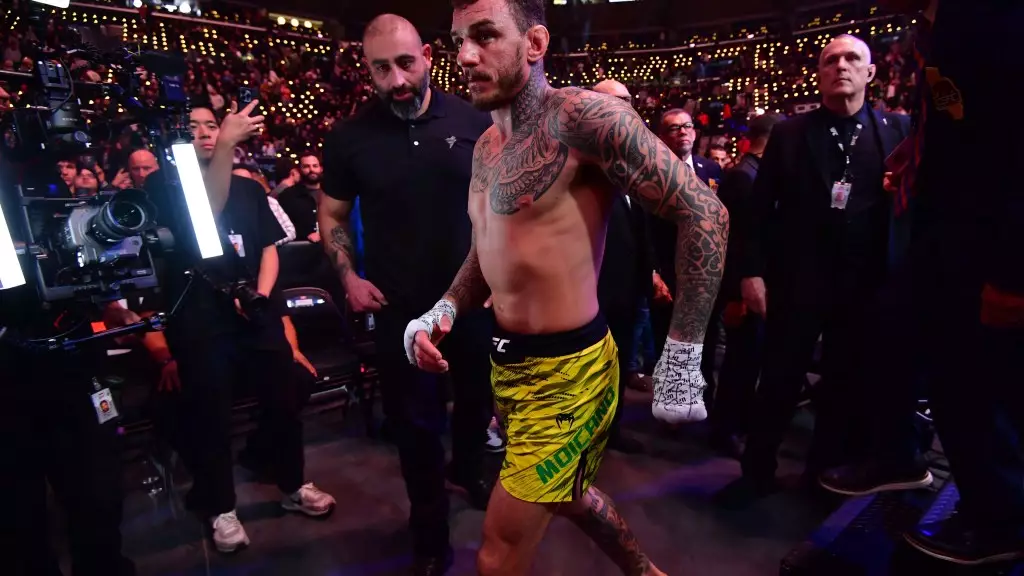After UFC 311, Brazilian mixed martial artist Renato Moicano faced not just the frustration of an early defeat, but a deep, introspective journey reflecting on his aspirations and the essence of his fighting spirit. Having stepped into the cage on merely a 24-hour notice, Moicano faced reigning lightweight champion Islam Makhachev, an opportunity that few fighters would turn down, regardless of the circumstances. Yet, the dream of capturing the championship title came to an abrupt and painful halt, as he was submitted within the first round.
Revisiting his last-minute gamble, Moicano’s willingness to replace Arman Tsarukyan highlighted his dedication. However, stepping into the ring against an elite champion like Makhachev presented a formidable challenge that many believed he was unprepared for. Being a vast underdog meant that not even die-hard fans expected a victory, yet Moicano’s ambition was palpable. His reflections post-fight were filled with vulnerability; he articulated a harsh reckoning, stating, “Islam was much better than I today.” This admission demonstrates Moicano’s understanding of the sport’s competitive nature, acknowledging the gap between his current form and the champion’s skillset.
Beyond the confines of the fight, Moicano seized the microphone to express his discontent—not only with the outcome of the match but also with financial systems and governmental controls surrounding the world of combat sports and beyond. His intended message, inspired by economist Murray Rothbard, was about the devaluation of personal freedom in the face of systemic constraints. He lamented, “Yesterday I lost and stayed silent. But I will return to say what needs to be said!” This penchant for deeper societal discourse marks a departure from the typical post-fight interviews, demonstrating that Moicano’s priorities transcend mere accolades in his sport.
By framing his experience through the lens of financial and personal freedom, Moicano’s reflections challenge conventional fight narratives. While fighters often focus solely on victories or defeats, he opts to illuminate the broader injustices that he feels are embedded in societal structures. This is emblematic of a fighter who is not just engaged in a quest for a belt but is also a thinker and an advocate for systemic change.
The Road Ahead: Resilience in Defeat
The aftermath of this fight left Moicano heavy-hearted yet resolute. “I don’t know if I will ever get a chance like that again, but I will try my best to do it,” he stated, encapsulating the spirit of resilience that defines athletes who strive to overcome adversity. This determination to persist speaks volumes about Moicano’s character. Despite the setback, he has hinted at a commitment to continue fighting—not just for recognition, but for a cause greater than himself.
Moicano’s journey in the UFC may be marked by this recent defeat, but his unique platform allows him to inspire discourse beyond the fighting community. His commitment to “fight for freedom” indicates that his aspirations will continue to evolve; his story will carry forward, challenging not only himself but also the limitations imposed by social and economic constraints. The true measure of a fighter lies not only in their victories but in their ability to rise, reflect, and inspire growth, both within and outside the ring.

